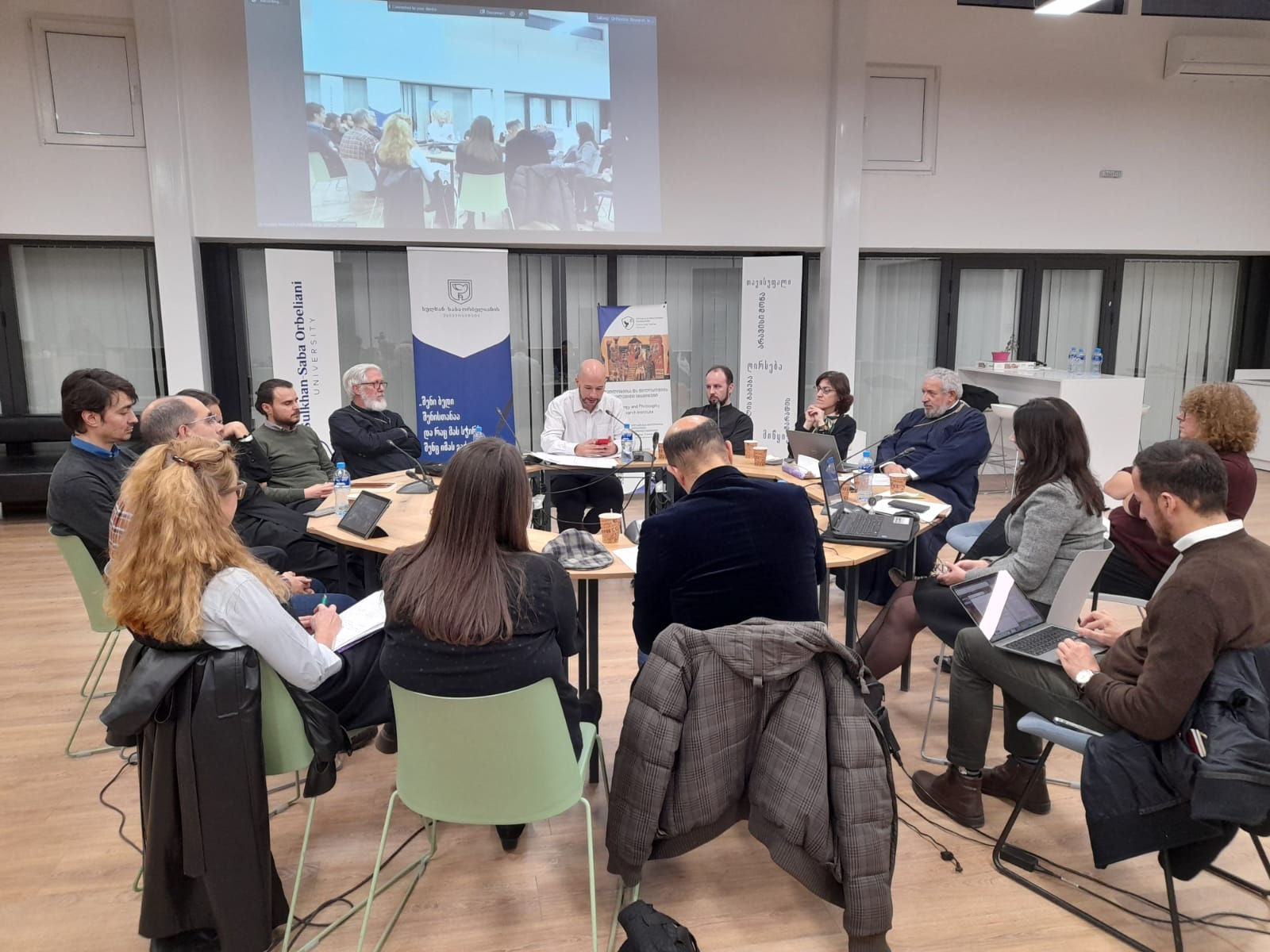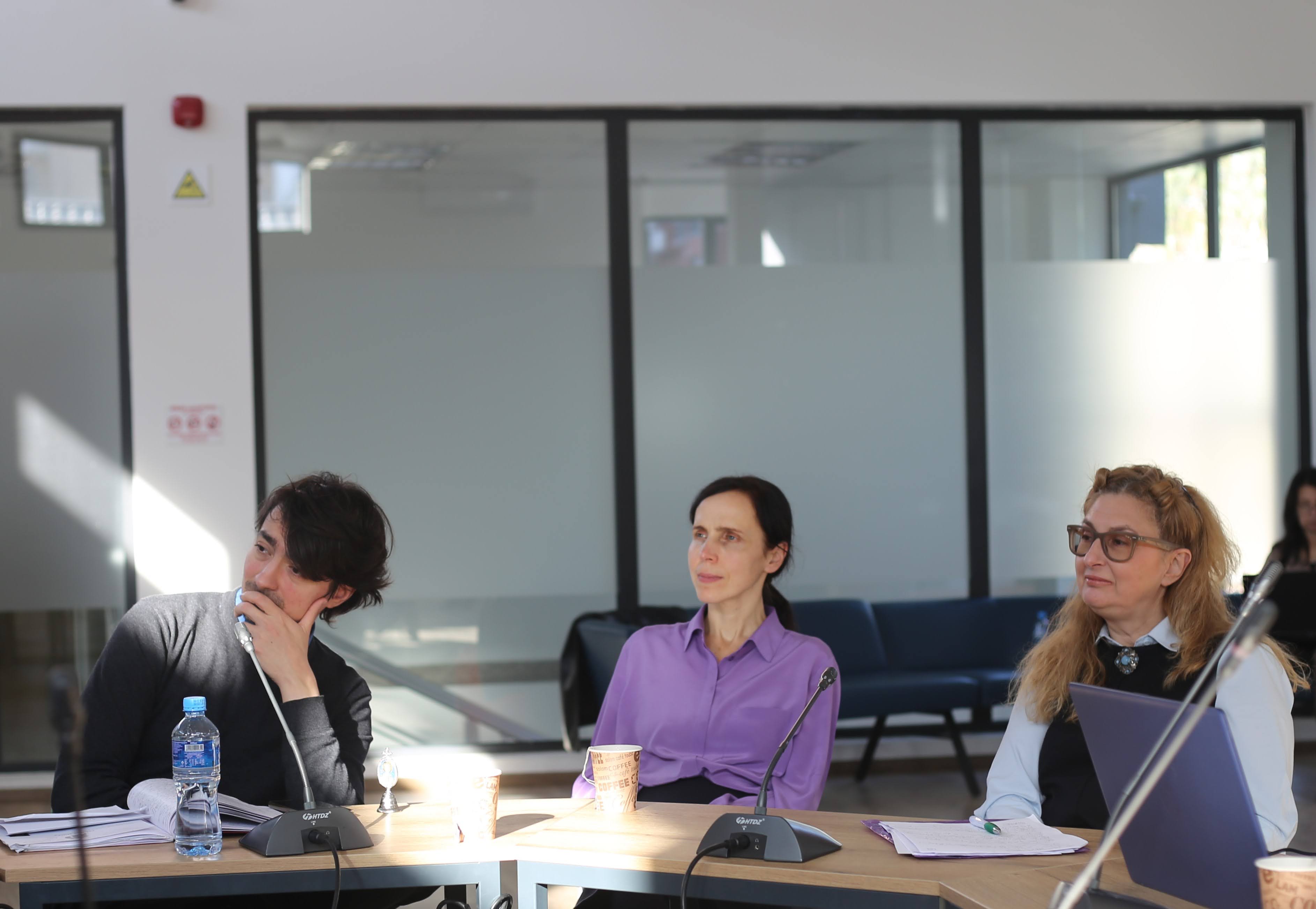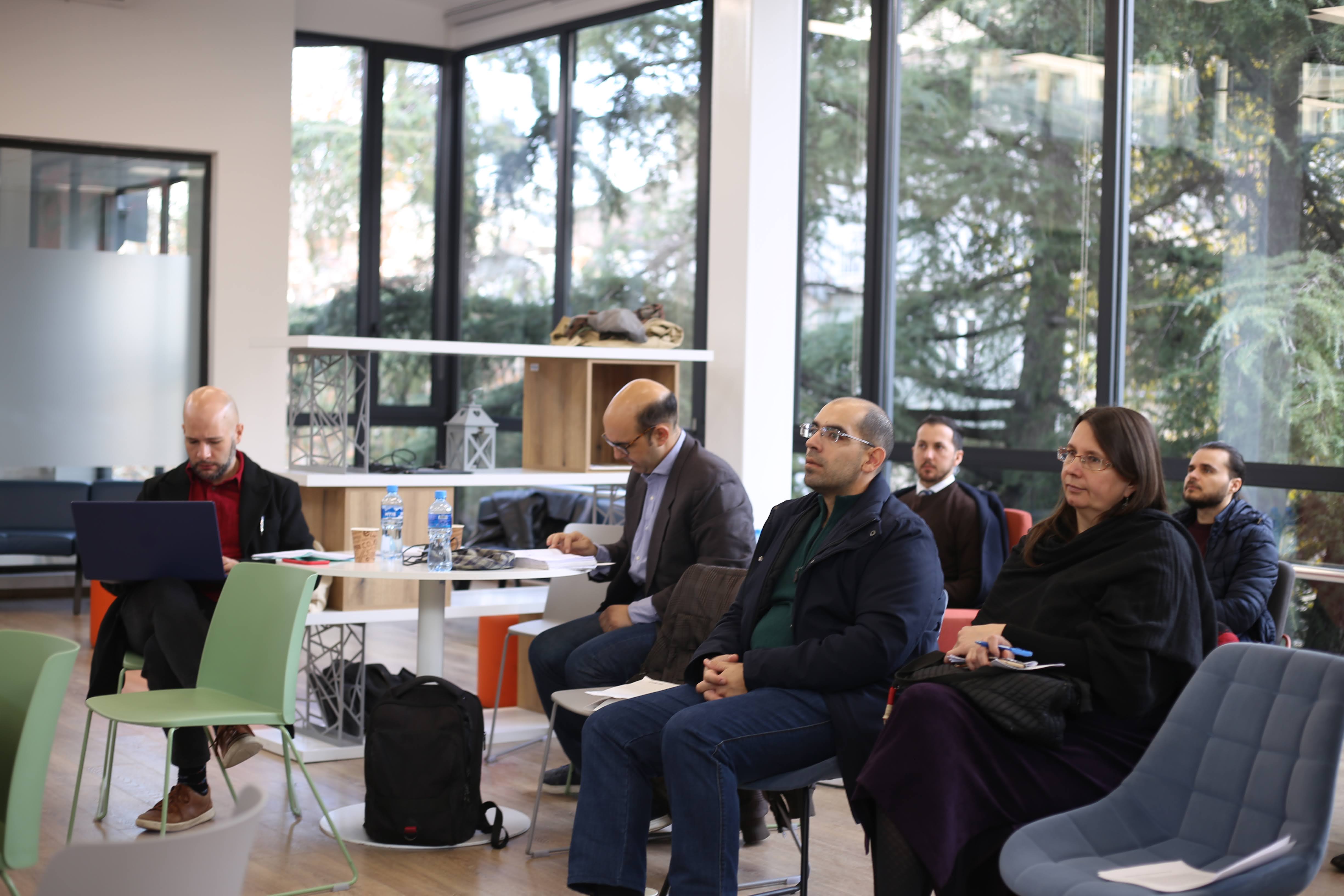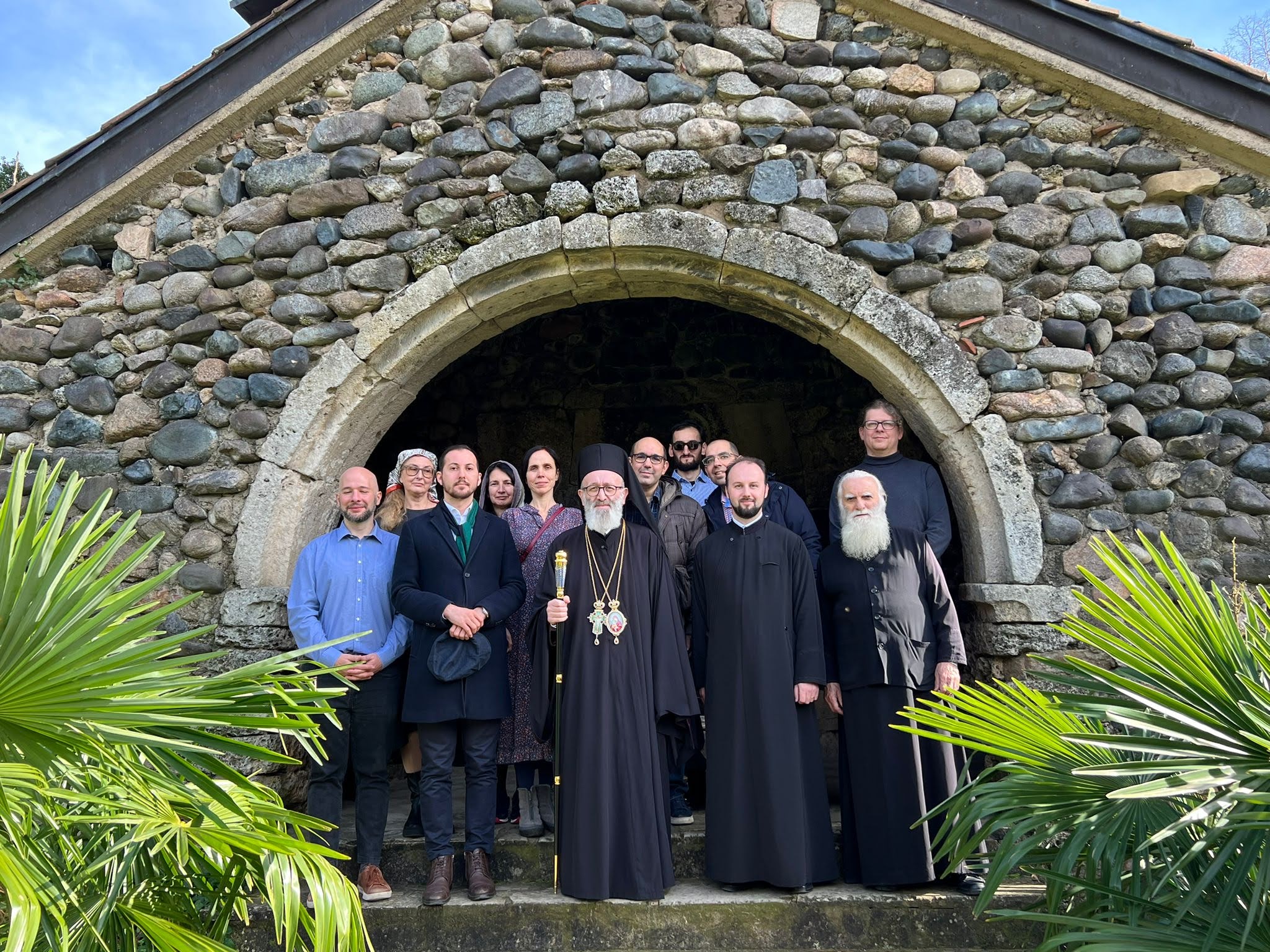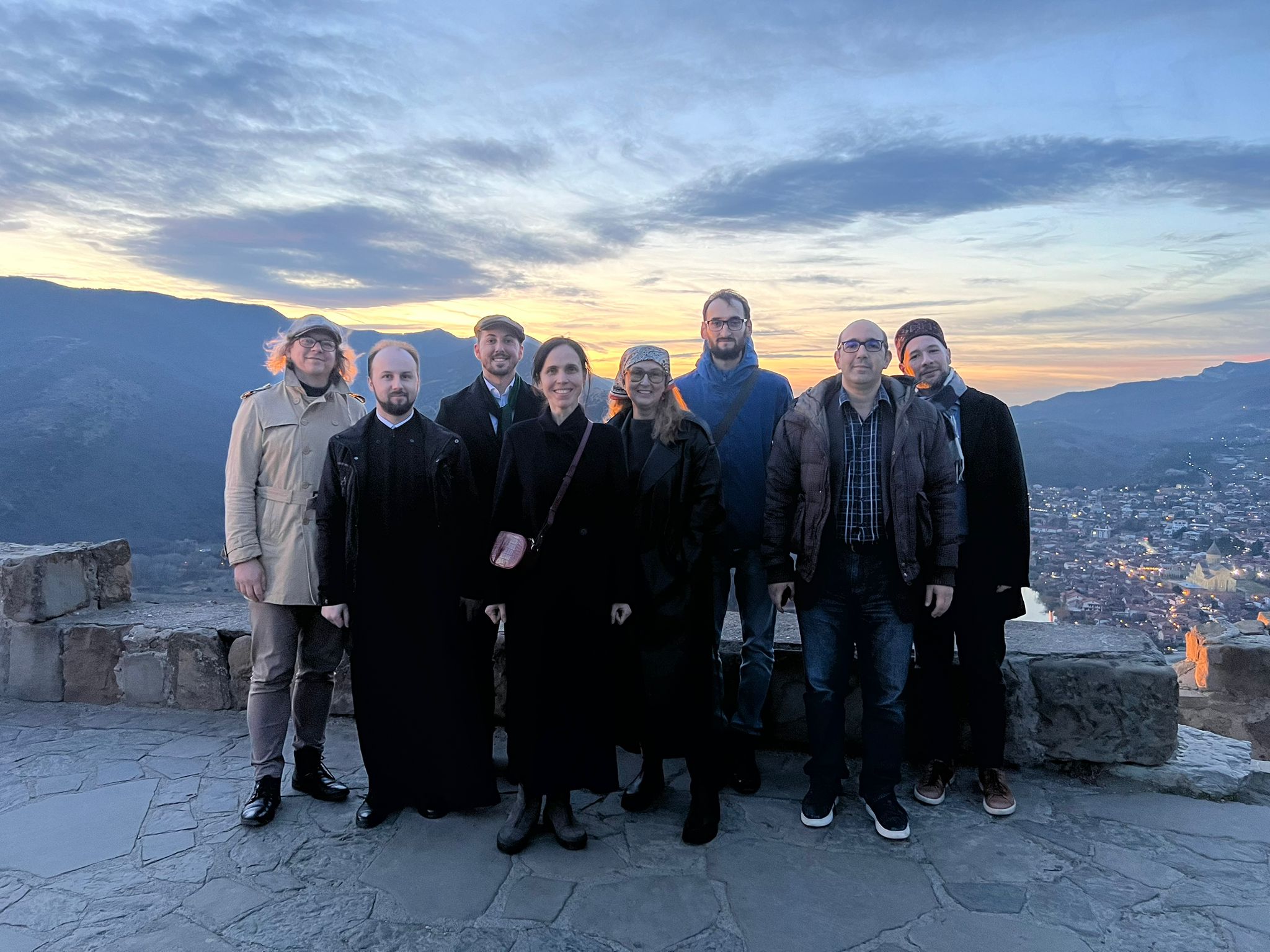ORIC Sixth International Theological Conference
In cooperation with the Theological School of Sulkhan-Saba Orbeliani University in Tbilisi, Georgia
The conference is organised with the financial support of the Fellowship of St. Alban and St Sergius
READING SCRIPTURE AS ORTHODOX THEOLOGIANS
1-7 December 2023 Kutaisi-Tbilisi
Update: Gathered in Tbilisi for a theological conference, our journey began in Kutaisi, where we spent a weekend in deep discussion and fellowship. Here are some snapshots capturing the essence of our theological odyssey.
Conference Programme
Monday 4 December
SCRIPTURE AS A PROPHESY ABOUT CHRIST
Opening of the Conference
Talks at the Theological School of Sulkhan-Saba Orbeliani University in Tbilisi
8.45-9.00 am Prayer
9.00-9.10 am Conference Welcome Speech
9.10-9.20 am Dean of the Faculty Welcome Speech
9.20-10 am Dr. Olga Sevastyanova, Keynote Speech: Meeting God Face to Face
10.00-10.10 am Coffee break
1st Session
Chair: Rev. Dr Stephen Headley
10.10-10.40 am Metropolitan of Zimbabwe Serafim Kykotis
The Biblical exegesis of St. Athanasius the Great vs. the one of Arius’
10.40-11.10 am Dr Danut Vasile Jemna
Scriptural exegesis of Irenaeus of Lyon
11.10-11.40 am Dr Zdenko Sirka
Biblical exegesis of the Cappadocian Fathers
11.40- 12.10 am Dr Olga Sevastyanova
Scriptural exegesis of Gregory of Nyssa
12.10 pm Taking ORIC Group Picture
12.20-1.45 pm Lunch
2nd Session
Chair: Dr. Dionysius Skliris
2-2.30 pm Dr Eka Tchkoidze
The letter of Abgar in the Church practice (a Georgian case)
2.30-3.00 pm Dr Alessia Brombin
Interpreting Scripture through Chrysostom’s lens: John Chrysostom’s path to divine reconciliation
3- 3.30 pm Dr Guram Lursmanashvili
George the Hagiorite and his contribution to Georgian biblical studies
3.30-3.45 am Coffee break
3.45-5.15 pm Panel Discussion: Scripture as a Prophesy about Christ: Different Approaches to Scriptural Exegesis in Patristic Tradition
Chair: Guram Lursmanashvilli
5.30-6.45 pm Dinner at Sormoni Restaurant (57 Alexander Kazbegi Ave, Tbilisi 0101)
7 pm Vespers in the Faculty Chapel
Tuesday 5 December
SCRIPTURE AS A WORD OF GOD
Talks at the Theological School of Sulkhan-Saba Orbeliani University in Tbilisi
8.45-9.00 am Prayer
1st Session
Chair: Dr Emil Marginian
9.00-9.30 am Dr Dionysios Skliris
The logoi of Scripture according to Saint Maximus the Confessor and their relevance for a contemporary Narrative Theology
9.30-10.00 Dr Bogdan Brinza
“Ὁ πάθος and τό πάθημα – Their role in the demarche of interpretation of the Holy Scripture in the vision of Saint Maximus the Confessor.”
10 -10.15 am Coffee break
2nd Session
Chair: Natalia Munataeva
10.15-10.45 am Dr Eirini Arthemi
Scriptural exegesis of Cyril of Alexandria
10.45- 11.15 am Dr Emil Marginian
An innovative spiritual approach to holy writings and sacred scriptures in Nil Sorsky
11.15-11.45 am Dr Stefan Zeljkovic
Reading scripture as orthodox theologians means living scripture as disciples of Christ towards others
12.00-1.30 Lunch
Chair: Dr Petre Maican
1.30-2.00 pm Dr Sotiris Mitralexis
Scripture’s language and its sociopolitical adventures: An unfortunate case study from early 20th-century Greece
2.00-2.30 pm Rev. Dr Nathanael Neacșu
Scripture, Church, Tradition. A dynamic theological reading of the Scripture within the traditional framework of the Church
2.30-3.00 pm Rev. Dr Stephen Headley
Scripture as God’s writing on our heart
3-3.30 pm Dr Raul-Ovidiu Bodea
The notion of Biblical Faith in the Theology of John Zizioulas
3.30-3.45 pm Coffee break
4.00-6.00 pm Round Table: Brainstorming Different Approaches to Biblical Exegesis
Chair: Natalia Munataeva
6.10 pm Dinner at Sormoni Restaurant (57 Alexander Kazbegi Ave, Tbilisi 0101)
Wednesday 6 December
WHAT IS THE GOSPEL?
Talks at the Theological School of Sulkhan-Saba Orbeliani University in Tbilisi
8.45-9.00 am Prayer
1st Session
Chair: Dr Natalia Doran
9.00-9.30 am Aleksandre Gabunia
Rediscovering Scriptural perspective of Byzantine iconography: The inverted perspective of Orthodox Christianity
9.30-10.00 am Dr Petre Maican
The primacy of experience in interpreting Scripture: A critical assessment
10.00-10.30 am Dr Natalia Doran
Creation Psalm – a case study of Orthodox interpretation
10.30-10.45 Coffee break
10.45- 11.15 am Dr Viktar Niachayeu
The empirical study of the regularity and importance of Bible reading among the highly religious Orthodox population
11.15-11.45 am Slavisa Kostic
The contribution of Emilijan Čarnić to Biblical hermeneutics and textual criticism for Serbian Biblical Scholarship
12.00-1.30 pm Lunch
2nd Session
Chair: Paschalis Tsitsifulas
1.30-2 pm Dr Elena Narinskaya
The prophets and community building in Biblical exegesis
2-2.30 pm Dr Lawrence Osborn
To till and to keep: towards an Orthodox reading of Genesis 2:15 in the context of the Climate Crisis
2.30-3 pm Dr Viorel Coman
The Holy Spirit and Scripture: Andre Scrima’s contribution to Vatican II’s dogmatic constitution on Divine revelation Dei Verbum
3-3.15 pm Coffee break
Reading Scriptures as Orthodox Theologians: Contemporary Challenges and Perspectives
ORIC Members Research and Publications Reports
Chair: Dr Olga Sevastyanova
5 pm Brainstorming of the ORIC Future Activities
6 pm Dinner at Sormoni Restaurant
7 pm Conference Closing and Vespers

